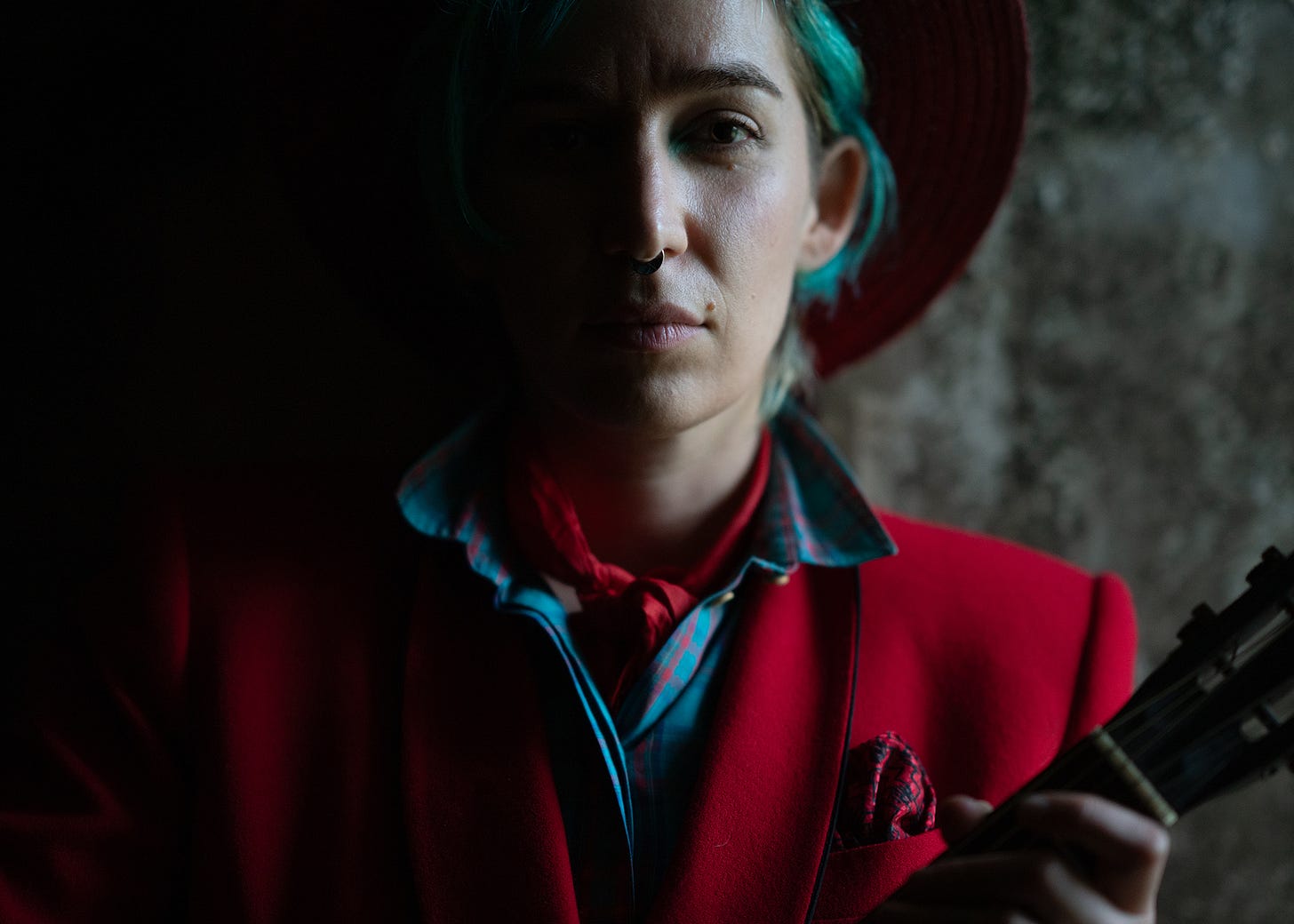CR 001: Zoe Boekbinder on Using Art to Influence Change
The singer-songwriter discusses social justice, their creative process, and their stunning new album, "Wildflower."
Singer-songwriter-guitarist Zoe Boekbinder (they/them) gained prominence in 2020 when Long Time Gone, an album they co-produced with Ani DiFranco, was released on DiFranco’s indie label Righteous Babe Records. A collection of songs spanning multiple genres and performed by an assortment of musicians, the album (which is attributed to the Prison Music Project) generated significant press for one notable feature: each song was written by a man incarcerated at New Folsom Prison.
The album was the culmination of four-and-a-half years Boekbinder spent volunteering as a music teacher at the prison, an experience they say was life-altering. “It changed me internally. It changed the way I thought about and interacted with the world. It changed the way that I thought about art, and the music I was making. It changed everything.”
Now, Boekbinder is once again using their art to influence change. Their new album, Wildflower, a stunning collection of country-tinged f…
Keep reading with a 7-day free trial
Subscribe to Creative Reverberations to keep reading this post and get 7 days of free access to the full post archives.



